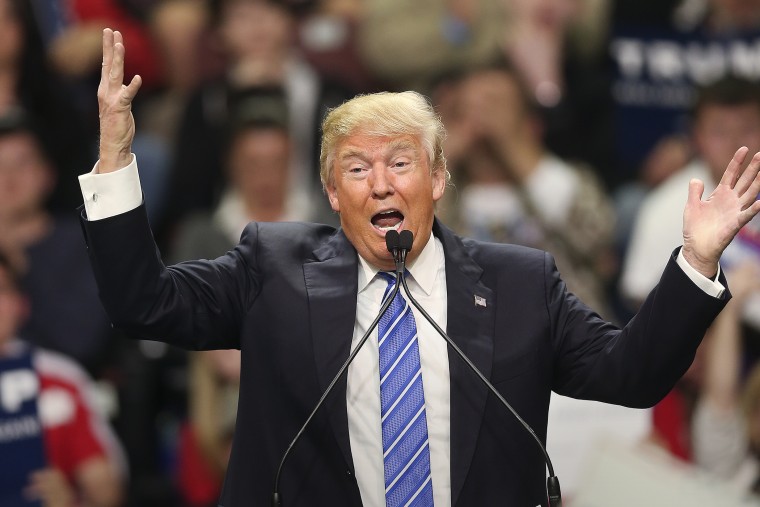As 2018 got underway, the speculation about Donald Trump's stability intensified. It led to a rather extraordinary moment: during an official press briefing, a reporter asked White House Press Secretary Sarah Huckabee Sanders whether Americans should be "concerned about the president's mental fitness." (She initially responded by trying to change the subject.)
Soon after, Trump addressed the issue himself via Twitter, writing on a Saturday morning, "Actually, throughout my life, my two greatest assets have been mental stability and being, like, really smart.... I think that would qualify as not smart, but genius -- and a very stable genius at that!"
The missives had the opposite of the intended effect. It wasn't at all reassuring to see a president writing impulsive, poorly written tweets, published early on a Saturday morning, about how impressed he was with his stability and intellect.
All of this came to mind yesterday, after the New York Times published an extraordinary op-ed from an unnamed senior official in the Trump administration, which effectively described the president as being quite mad. Among other things, the piece said Trump was ignorant, erratic, and prone to engaging "in repetitive rants."
Soon after, the president seemed eager to prove his critic right. At a White House meeting with a group of sheriffs, fielded a question from a reporter who asked about the New York Times piece. He delivered a long, rambling, repetitious rant in which Trump struggled to maintain a consistent train of thought.
As part of the tirade, Trump described the American media as a "disgrace," characterized his presidency as the most successful in history, exaggerated his economic record, lied about border wall construction, said news organizations will go out of business when he leaves office, lied about an imaginary New York Times "apology," and started referring to himself in third person, all before lying about his poll numbers.
"So they don't like Donald Trump, and I don't like them, because they're very dishonest people.... So if the failing New York Times has an anonymous editorial -- can you believe it? 'Anonymous' -- meaning gutless. A gutless editorial."We're doing a great job. The poll numbers are through the roof. Our poll numbers are great. And guess what? Nobody is going to come close to beating me in 2020 because of what we've done. We've done more than anybody ever thought possible in -- it's not even two years."
Soon after, the president argued that the New York Times "must" turn over the op-ed's author to the government "at once" -- for "national security purposes."
Obviously, that's not going to happen, but the important part of Trump's breakdown was the fact that it happened. The president could've responded to questions about his mental stability by appearing measured and mature, reassuring the public that he's capable of steady leadership.
Unable to help himself, Trump did the opposite.
The very stable genius strikes again.
